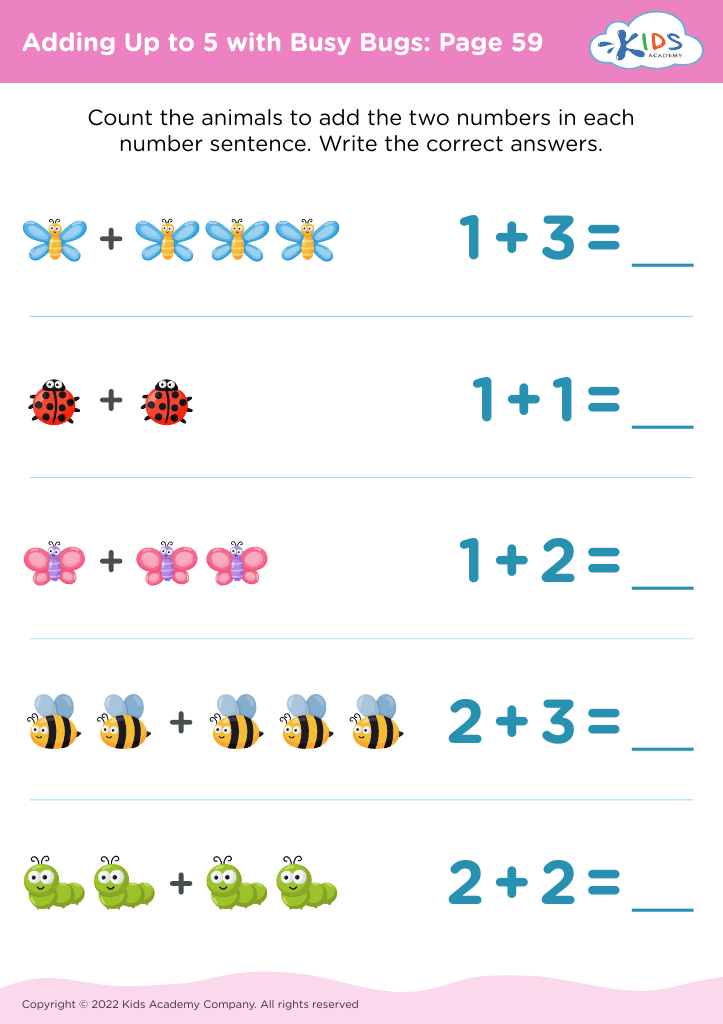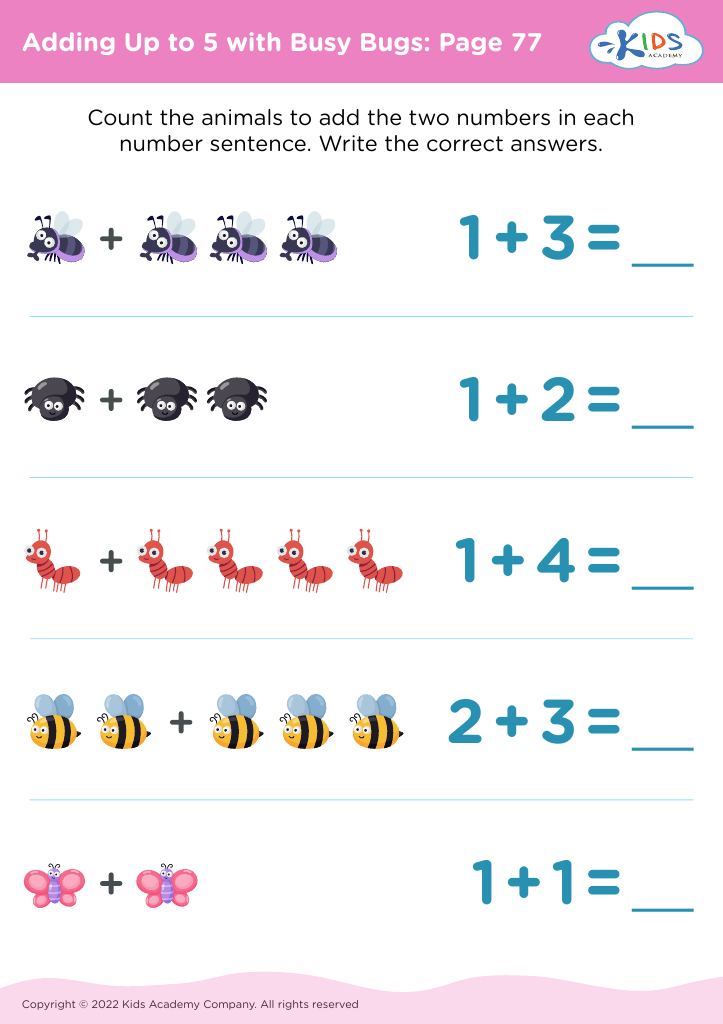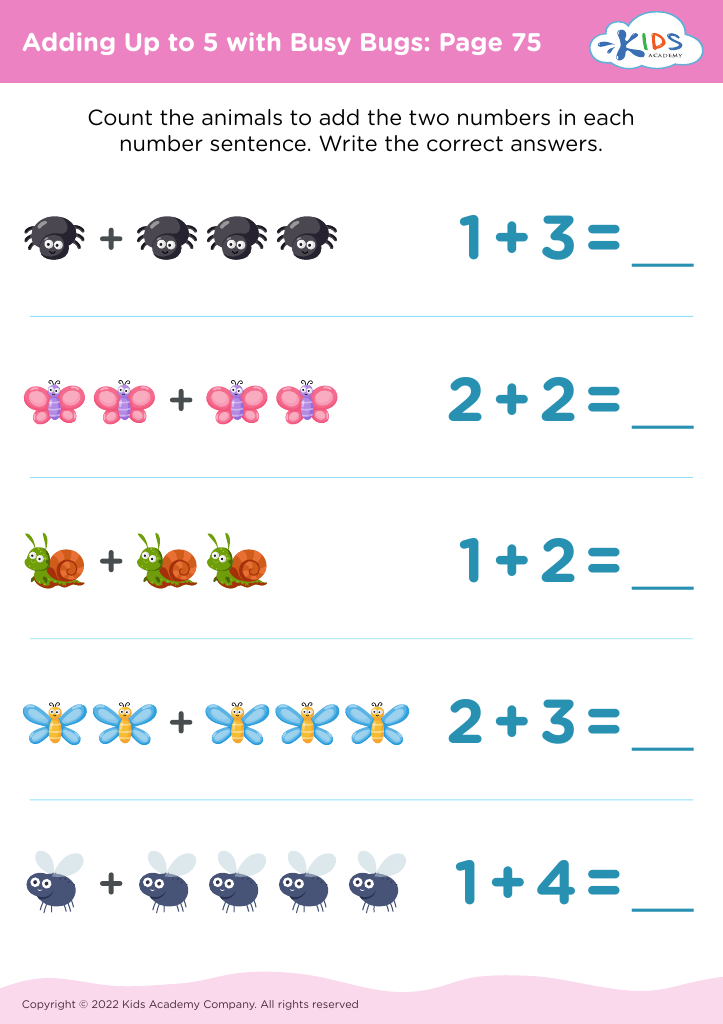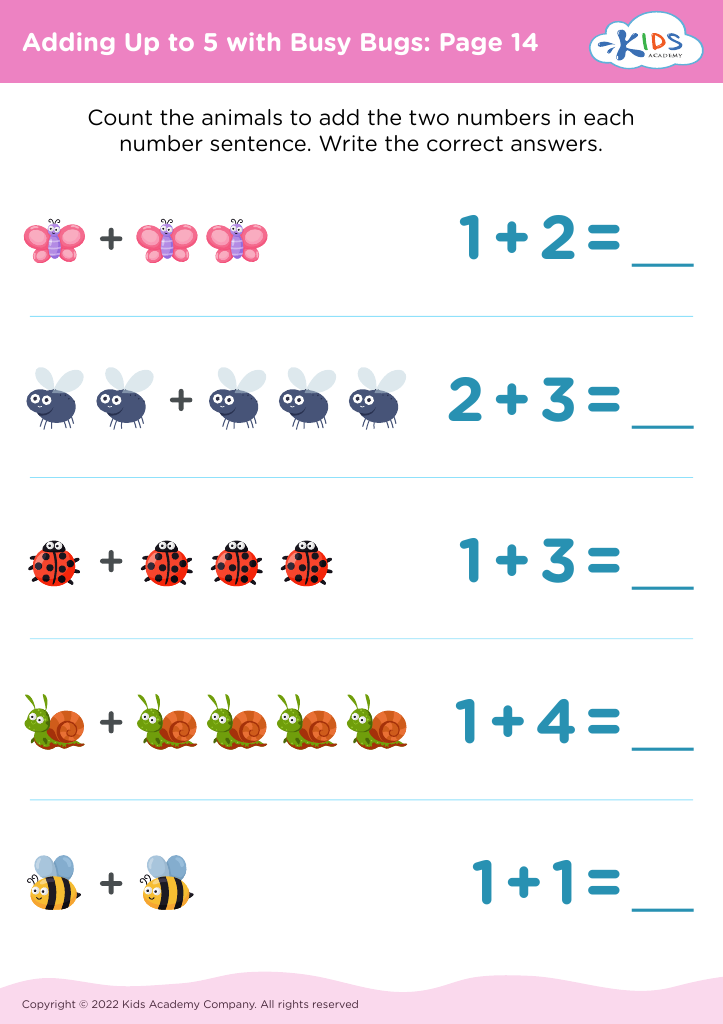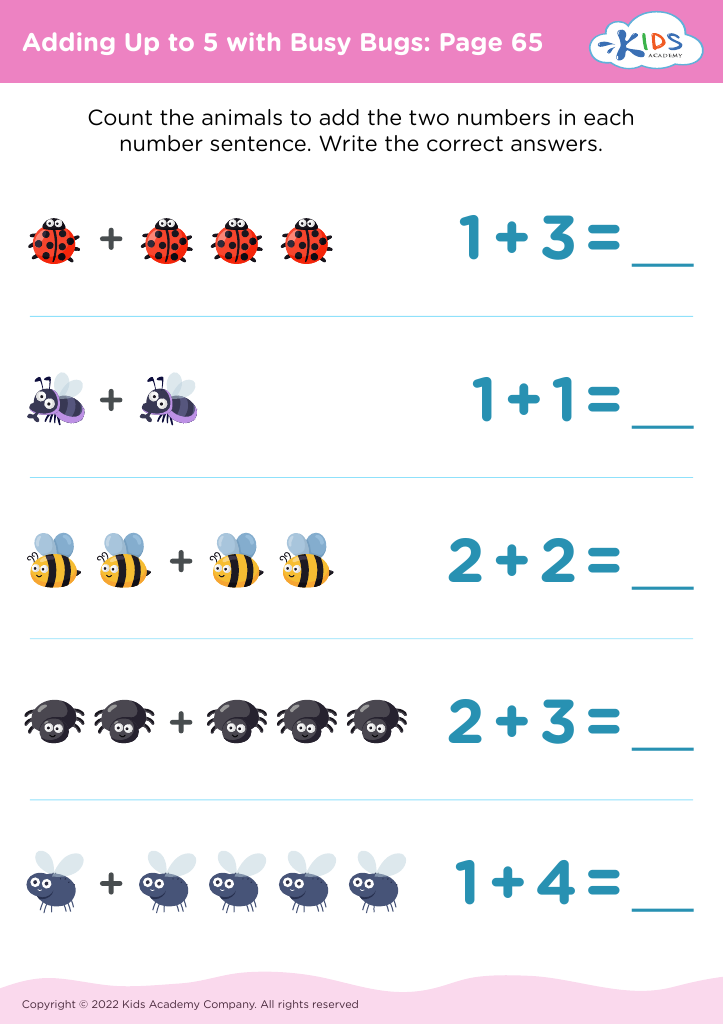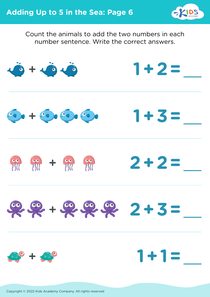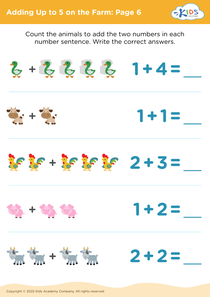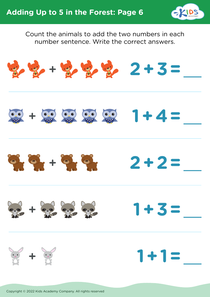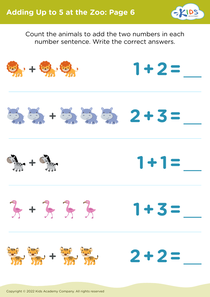Fine motor skills (writing) Adding with Busy Bugs Worksheets for Ages 3-9
5 filtered results
-
From - To
Enhance your child's fine motor skills with the "Adding with Busy Bugs Worksheets" for ages 3-9. These engaging and educational worksheets combine math practice with fun handwriting activities, making it perfect for young learners. Each worksheet features vibrant bug-themed illustrations that captivate children's attention while they practice adding numbers and writing. This dual focus not only strengthens their mathematical understanding but also hones their finger dexterity and pencil control. Perfect for preschool to early elementary students, these worksheets make learning both enjoyable and effective, ensuring your child builds essential skills with confidence and enthusiasm. Download now from Kids Academy!
Fine motor skills, which involve the coordination of small muscles to perform tasks, are fundamental in early childhood development. For children aged 3-9, activities like "Adding with Busy Bugs" can tremendously enhance these skills, ensuring a solid foundation for writing and other intricate tasks.
Parents and teachers should prioritize the development of fine motor skills for several reasons. Firstly, strong fine motor skills enable children to write legibly and efficiently, which is crucial for academic success. Tasks such as gripping a pencil, maneuvering scissors, or fastening buttons also improve, fostering independence in daily activities.
Moreover, engaging activities like "Adding with Busy Bugs" make learning fun and interactive. Manipulating small, bug-shaped counters to add fosters pincer grasp development, strengthens hand-eye coordination, and enhances spatial awareness. These playful exercises promote logical thinking and numeracy skills, making abstract math concepts tangible through hands-on experience.
Additionally, well-developed fine motor skills lead to improved dexterity and artistic abilities, contributing to a child's overall self-confidence and willingness to engage in diverse activities. Therefore, integrating engaging, targeted activities in educational settings ensures that children develop these essential skills, empowering them for future academic and personal success.
